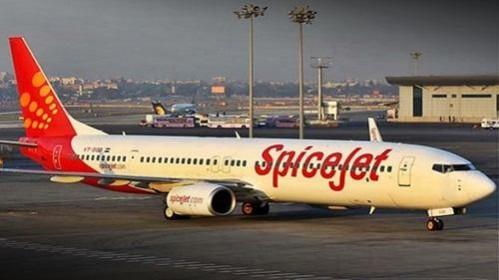
SpiceJet has approached the Supreme Court, seeking an urgent hearing against a directive issued by the Delhi High Court. The directive in question mandates the airline to ground three of its engines due to repeated failures in making payments to its lessors. This move by SpiceJet was made on September 12, marking a significant turn in the ongoing legal tussle between the airline and its lessors.
The matter was brought to the attention of the Chief Justice of India (CJI), D. Y. Chandrachud, who instructed SpiceJet's legal representative to send an email to the apex court's registry for an urgent listing. This move indicates the urgency with which the airline is pursuing the matter, highlighting the critical nature of the situation.
The directive from the Delhi High Court came after the airline repeatedly failed to meet its financial obligations to its lessors. A division bench of the court refused to interfere with the directive, which required the grounding of three engines.
This decision was made despite SpiceJet's appeal for an urgent hearing, further complicating the airline's predicament. Prior to this, a single-judge bench of Justice Manmeet Singh Arora of the High Court had instructed SpiceJet to ground three engines by February 16. The judge also ordered the airline to take necessary steps to ensure that the engines are returned to the lessors within a span of 15 days. This decision was challenged by SpiceJet, leading to the current appeal before the Supreme Court.

In his judgment, Justice Arora noted, "The defendant (SpiceJet) is a defaulter and has no legal and contractual right to continue the use of the engines. The inability of the defendant to pay the admitted outstanding dues is writ large on the face of the record and in fact permitting the defendant to continue the use of the engines without payment would only cause financial distress to the plaintiff (lessors)."
SpiceJet was initially allowed to continue using the engines after it committed to the Delhi High Court on May 29 that it would repay the outstanding lease amounts along with weekly payments. However, the Delhi High Court clarified that the return of the engines does not absolve the airline from its liability of payments which have admittedly fallen due.
This case bears a striking resemblance to the Kingfisher Airlines debacle that unfolded a few years ago. The airline, owned by liquor baron Vijay Mallya, was grounded due to non-payment of dues to lessors, among other financial irregularities. The case had a significant impact on the aviation industry in India, leading to stricter regulations and increased scrutiny of airlines' financial health.
The current situation with SpiceJet is a stark reminder of the financial challenges faced by airlines, particularly low-cost carriers. The grounding of engines is a significant blow to the airline's operations, potentially leading to flight cancellations and disruptions. The outcome of the urgent hearing sought by SpiceJet in the Supreme Court will be closely watched by industry stakeholders, as it could set a precedent for similar cases in the future.












